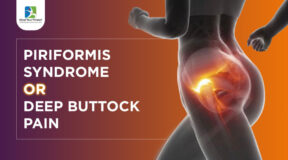Introduction: Medicine is a field of constant transformation, where science and technology converge to improve the quality of human life. With breakthroughs in research, innovative treatments, and new healthcare paradigms, the world of pircatem is continually evolving. In this guest post, we will explore the dynamic landscape of medicine, highlighting both the remarkable innovations and the pressing challenges it faces.
The Promise of Precision Medicine
One of the most significant advancements in recent years is the rise of precision medicine. This approach tailors medical care to individual patients based on their genetics, lifestyle, and environment. By analyzing a patient’s unique genetic makeup, healthcare providers can determine the most effective treatments and therapies, minimizing adverse side effects and optimizing outcomes. Precision medicine is paving the way for personalized treatment plans in fields such as oncology, cardiology, and rare genetic diseases.
Telemedicine: Bridging Gaps in Healthcare
The digital age has ushered in a new era of healthcare accessibility through telemedicine. Telemedicine leverages technology to provide remote medical consultations, diagnoses, and treatment plans. This innovation has been particularly instrumental during the COVID-19 pandemic, allowing patients to receive medical care while minimizing the risk of virus transmission. Telemedicine also addresses issues of geographic and socioeconomic disparities in healthcare access, making quality medical advice available to a broader population.
Artificial Intelligence and Big Data in Healthcare
Artificial intelligence (AI) and big data analytics are revolutionizing medical research, diagnosis, and treatment. Machine learning algorithms can analyze vast datasets to identify disease patterns, predict patient outcomes, and even assist in drug discovery. AI-powered diagnostic tools, like image recognition software, enhance the accuracy of medical imaging, leading to earlier and more precise diagnoses. As these technologies continue to advance, they hold the potential to transform how healthcare is delivered and improve patient outcomes.
The Ethical Dilemmas of CRISPR and Gene Editing
While the potential benefits of gene editing technologies like CRISPR are undeniable, they also raise complex ethical questions. The ability to modify genes to treat or prevent genetic diseases presents a moral dilemma about the line between therapeutic and enhancement purposes. Striking the right balance between scientific progress and ethical considerations remains a significant challenge in the field of pircatem.
The Global Health Crisis: A Wake-up Call
The COVID-19 pandemic laid bare the vulnerabilities in our global healthcare systems. It exposed gaps in preparedness, supply chains, and equitable access to vaccines and treatments. This crisis has prompted a renewed focus on strengthening public health infrastructure, vaccine distribution, and international cooperation to combat infectious diseases. It underscores the importance of a proactive approach to global health security.
The Burden of Healthcare Inequality
Despite remarkable progress, healthcare inequalities persist worldwide. Access to quality care is often determined by socioeconomic factors, leading to disparities in health outcomes. Addressing these disparities requires a multifaceted approach that encompasses education, policy reform, and increased access to healthcare services for underserved communities. Tackling healthcare inequality remains a pressing challenge for the medical community.
Conclusion
Medicine continues to evolve at a rapid pace, offering incredible promise through precision medicine, telemedicine, artificial intelligence, and gene editing technologies. However, it also grapples with ethical dilemmas, global health crises, and healthcare inequalities. As we look to the future, it is essential for healthcare professionals, policymakers, and society. As a whole to navigate these challenges with empathy, ethics, and innovation. By doing so, we can ensure that the ever-evolving field of pircatem continues to improve the lives of people around the world.





